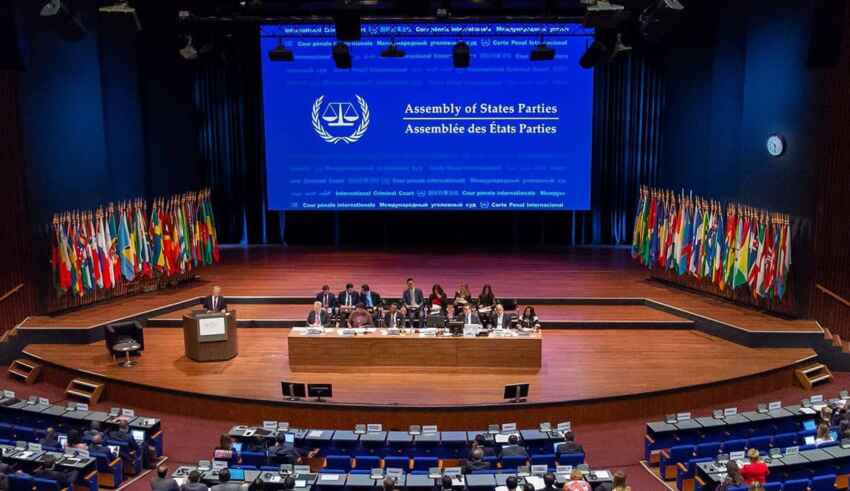
Recently Volker Türk, the UN High Commissioner for Human Rights, welcomed the decision of Kenya to charge 12 of its senior police officers for murder, torture and rape as crimes against humanity in the context of State’s 2017 post-electoral violence as an important improvement towards accountability for gross violations of human rights, stating that this “ground breaking decision is a positive step towards justice and accountability for survivors and families of victims, including in the context of electoral violence, and can strengthen prevention of future violations”.
Kenya has a long history of post-electoral violence. As documented by human rights associations the State, defined as one of the most stable democracies within the African region, has been characterised by a pattern of widespread and systematic abuses carried out by police authorities in the aftermath of every recent election, using excessive force to repress peaceful manifestation of dissent by performing unlawful killings, beatings, acts of sexual violence. This is the first time that Kenya applies its International Crimes Act, the legislation that implements international criminal law domestically, and also the first prosecution of electoral-related sexual violence (identified as a widespread political tool to be systematically used by police forces, especially in remote areas) and the first domestic case claiming command responsibility as form of liability.
To enable national States to prosecute atrocities in domestic tribunals as international crimes is one of the aims of international justice. This is the idea beyond the ICC principle of complementarity, that states that the primary responsibility to prosecute international crimes lays on domestic courts, and the ICC should be considered as a court of last resort exercising jurisdiction only when States are unwilling or unable to prosecute domestically. When States adopt solid implementing legislations that account for international crimes, transposing international criminal law into their national legal framework, there are many advantages in prosecuting perpetrators of gross violations before domestic courts: trials are more expeditious and less expensive, it is easier to collect and secure evidence, judges are aware of national dynamics and are less influenced by cultural bias, and, when national proceedings are successful in pursuing justice, it helps to restore public trust in national institutions and it fosters reconciliation through an effective victims participation.
Apart from the exercise of universal jurisdiction, a pivotal approach to transitional justice that has demonstrated to be very promising but that may also be subject to all the limits derived from delivering justice far from the place where atrocities occurred (this includes witness protection, victims participations, evidentiary or translational challenges), there have also been encouraging precedents of successful domestic trials for mass atrocities. Relevant examples are provided by the Democratic Republic of Congo: in the Kavumu trial a military court convicted 11 militia members (including a politician in office) of murder and rape as crimes against humanity, and just a year later two high-ranking commanders of a rebel armed force were condemned for crimes against humanity of torture and murder by a military tribunal in Bukavu. These proceedings lasted less than two years per each, ended up with life imprisonment for the convicted criminals and the sentence that included noteworthy redress was acclaimed by the victims.
However, for what regards Kenya, the decision to try those 12 policemen lauded by Türk is not so straightforward. It came from the recently elected president William Ruto, who was in turn accused before the ICC of crimes against humanity for having orchestrated the violence outbroken after the 2007 elections: in the end the prosecutor terminated the case because of the weakness of the evidence, in a controversial decision involving massive victim tampering and political meddling that occurred during the trial. After his indictment Ruto, together with his electoral rival and former Kenyan president Uhuru Kenyatta (charged as well for crimes against humanity by the ICC prosecutor), started to robustly oppose to the ICC, claiming its biased interference in African internal affairs and pushing for Kenya to opt out of the Rome Statute; both of the politicians asserted that Kenyan authorities were willing and able to prosecute crimes domestically, but that the citizens wanted to leave behind ‘issues that are long forgotten’, referring to the 2007 wave of violence. At last, for what regards 2007, nobody had been held accountable. The next attempt to deliver justice for electoral-related mass crimes started in 2019, with a national investigation that found five police high-rank officials accountable for human rights violations, including the death of a baby, Samantha Pendo, who became the symbol of police brutality during the 2017 presidential elections: despite they were later convicted for her death, facing charges for murder as an ordinary crime, they have never served any time in prison.
In the end, these charges for crimes against humanity are a first, positive step in a process that everybody hopes would lead to stop impunity for gross violations of human rights that recurred in the past Kenyan presidential elections, and that would act as a deterrent for the future ones: but it is not the finish line. To prosecute domestically is of pivotal importance, but especially in this case due diligence must be exercised. In order to effectively deliver justice to the victims and to rebuild trust in the institutions, it is important to stress that Kenya must prosecute in good faith crimes against humanity committed during the aftermath of all the elections, cooperating with international institutions if needed, and must enforce the sentences for those convicted. To be efficacious, the fight against impunity cannot be a mere instrument subject to political considerations in the hands of men or parties temporarily in charge, but must be built on the understanding of the beneficial effects of transitional justice on society at large, creating a culture of respect for human rights that will last, strengthening the foundations of democracy.
By The European Institute for International Law and International Relations.














